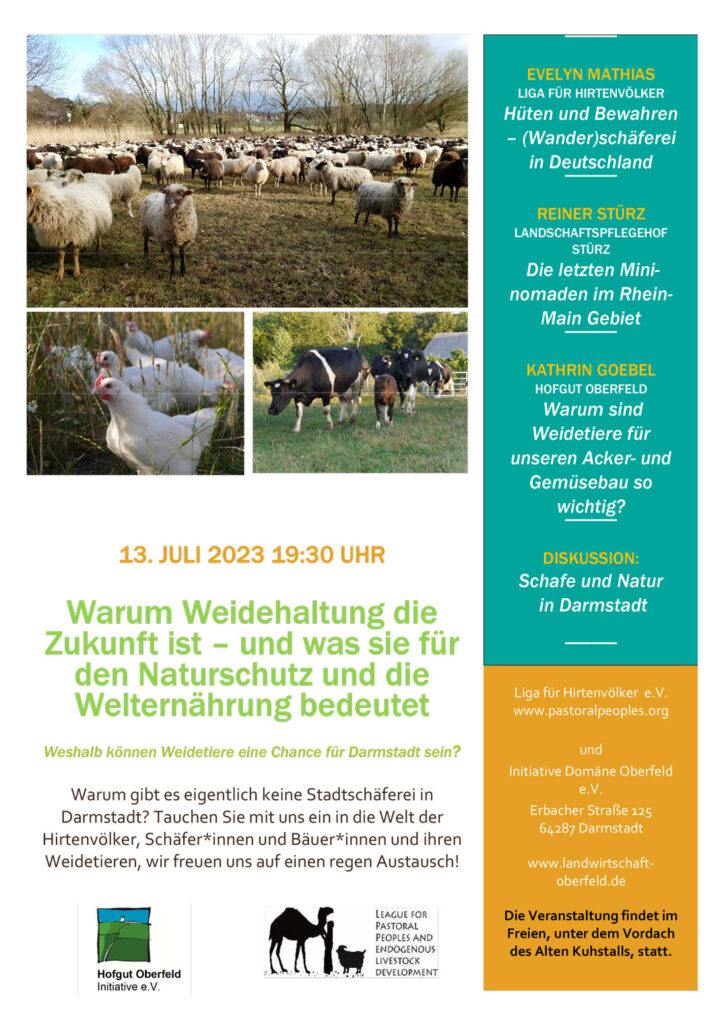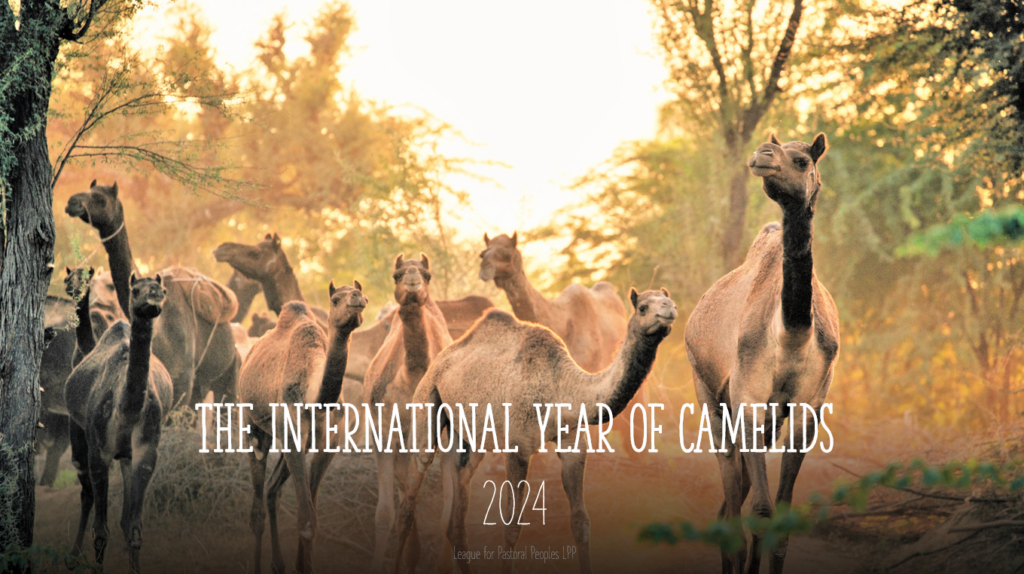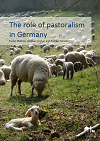Vortrags- und Diskussionsveranstaltung mit der Initiative Domäne Oberfeld e.V.
13.07.23, 19:30 Uhr, Hofgut Oberfeld in Darmstadt: Warum Weidehaltung die Zukunft ist – und was sie für den Naturschutz und die Welternährung bedeutet“

Warum können Weidetiere auch eine Chance für Darmstadt sein? Bei der gemeinsamen Veranstaltung mit der Initiative Domäne Oberfeld geht es um Wanderschäferei in Deutschland und weltweit und um die letzten (Mini)-Nomaden im Rhein-Main-Gebiet. Außerdem erklärt Kathrin Goebel, Bäuerin am Hofgut Oberfeld, warum Weidetiere auch für unseren Acker- und Gemüsebau so wichtig sind. Welche Beweidungsprojekte gibt es bereits in Darmstadt? Wäre eine Stadtschäferei sinnvoll? Tauchen Sie mit uns ein in die Welt der Hirtenvölker, Schäfer*innen und Bäuer*innen und ihren Weidetieren, wir freuen uns auf einen regen Austausch.
13.07.2023 19:30 Uhr
Ort: Hofgut Oberfeld, Erbacher Str. 125, Darmstadt, am alten Kuhstall.
Veranstalter: Liga für Hirtenvölker e.V. und Initiative Domäne Oberfeld e.V. www.landwirtschaft-oberfeld.de
Some Thoughts on the International Year of Camelids 2024

The United Nations General Assembly has declared 2024 the International Year of Camelids, making the point that camelids are the main means of subsistence for millions of families who live in the most hostile ecosystems on the planet in over 90 countries, and emphasizing that these animals are essential for food security and nutrition as they are the main source of meat protein and milk for smallholder farmers and indigenous communities in different regions throughout the world. They also provide fibres, organic fertilizer and transport and are indispensable for nomadic livelihoods.
This is certainly an appropriate justification, but as of now, there does not seem to be much of a coordinated effort to make the most of the opportunity presented by the IYC. Some background information and thoughts from our perspective can be found in this presentation. We at LPP are all set to highlight the traditional knowledge (TK) of camel pastoralists and its role in maintaining camel biodiversity, as well as develop the concept of ‘cruelty-free’ camel milk and ‘planetary’ rather than ‘plant-based’ diets, together with our partners and social enterprises. Do get in touch if you would like to join this initiative!
The role of pastoralism in Germany
Evelyn Mathias, Günther Czerkus and Andreas Schenk.
League for Pastoral Peoples and Endogenous Livestock Development, 2022.
This detailed study of the role of pastoralism in Germany argues that a small number of mobile pastoralists make an outsized contribution to the landscape and environmental conservation in Germany. Around 1,000 full-time shepherds manage some 70% of the national flock, they include transhumant (mobile) shepherds who move long distances between winter and summer pastures, and location-bound herders, who graze their sheep and goats in a more or less wide radius around the homestead. In addition, mountain farming in the Alps involves cattle, plus some sheep, goats and horses moving between summer mountain pastures and winter quarters in the valleys. These herders provide various environmental services, including maintaining landscapes, protecting land from flooding, erosion and fire, and maintaining grassland that preserves the quality of groundwater. Official statistics do not include pastoralism as a management system, so its value and its contribution is largely unrecognized.

